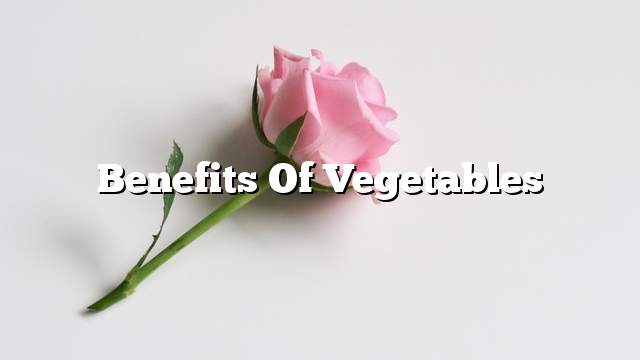Taking care of large quantities of vegetables and fruits is essential for a balanced diet that provides the body with all the necessary requirements for healthy growth, without being overwhelmed by another type, especially fresh vegetables, as it is an essential part of different types of food.
Vegetables are varieties of food that are eaten cooked, and eaten as pickles to eat either individually or with other materials, and can also be used parts of these plants, such as: leaves such as cabbage, cabbage and grape leaves, or roots such as carrots, or seeds such as beans, beans and peas .
Vegetable Sections
Vegetables can be divided by color into the following sections:
- Green vegetables Such as beans, peas, cucumbers, and leafy vegetables.
- Yellow vegetables Such as: carrots.
- Red vegetables Such as: tomatoes, red cabbage.
- White vegetables Such as: cabbage, potatoes.
Vegetables contain very few calories when compared to other foods, so we must eat them daily to the need of our bodies to vitamins and salts in them, and can not be dispensed with.
Food Importance of Vegetables
- Vegetables are foods that are low in fat, and if found in some varieties, they are easy to absorb fat, which is the source of fiber, and vegetables are a source of essential carbohydrates that provide energy to the body.
- Vegetables are rich in syrups and iron available in legumes.
- Vegetables contain high levels of water, giving the body many benefits such as: facilitating digestion, and flexibility of body organs.
- The most important thing that vegetables contain cellulose, which is not absorbed by the body; it remains inside the intestine activates its work, acts as a natural laxative of the digestive system, and activates the glands to secrete digestive enzymes, so it enters the installation of some special drugs to treat constipation.
- The most important vegetable varieties are: tomatoes, potatoes, eggplants, cabbage, onions, spinach, cucumber, mallow, beans, lettuce, radishes and squash.
- These items have great nutritional value, because they contain substances that help prevent the growth of bacteria in the digestive system.
How to choose the best types of vegetables?
- Vegetables are agricultural products that may be damaged or damaged during their transfer from the farm to the market. Therefore, vegetables must be selected without damage. Their outer shape is intact, non-curly, and their color indicates their safety. The most important is to be mature and medium-sized.
- Care should be taken to clean the vegetables well, especially from the residues of agricultural pesticides or the materials that are attached to them, as some of them are eaten without cooking such as paper, so be soaked with water and salt for about half an hour before ingestion.
